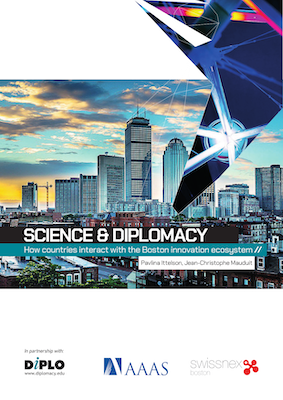Note: This article is a part of the publication ‘Science diplomacy capacity development: Reflections on Diplo’s 2021 course and the road ahead’
As a governance and sustainability strategy consultant I deal with organizations’ challenges within specific ecosystems. This includes understanding regulatory and policymaking frameworks, to anticipate their evolution and potential disruptions. It also means assessing other stakeholders’ roles and contributions (industry associations, academia, consumers and civil society). Environmental, social and economic landscapes are impacted by COVID-19, and pressure to address environmental, social, and governance issues also comes from shareholders and investors (Bell, 2021).
I am not a professional diplomat, nor do I consider myself a scientist. I have some negotiation experience (business and not-for-profit) and part of my background is engineering (MSc). I used social sciences (sociology, economics, organizational behavior) while working as a researcher in strategy and governance.
Admittedly, I struggled to find where my contribution fits in the Science Diplomacy arena. Beyond the hype, no universal definition exists, and it has become more complex as actors’ diversity increases. Science Diplomacy is an umbrella term (Rungius et al., 2018) describing a wide range of formal and informal activities ‘at the intersection between research and scientific international collaboration and the diplomatic and foreign policy agenda’ (Flink and Rüffin, 2019, p. 104). Let’s broaden it by not limiting interaction to scientists and foreign policy officials, with non-traditional Science Diplomacy interests such as the private sector and civil society. Then I can see myself in a ‘boundary spanning’ capacity (Bednarek et al., 2018). Using the course taxonomy, I fall in the “assignment” or “mixed model” category.
‘Boundary spanning’ plays a valuable role in the current EU legislative landscape: the Digital market strategy and agenda (Bracy, 2021) with the GDPR, Digital Markets Act, Digital Services Act and AI Act, or the EU Green Deal with the recently first Taxonomy Climate Delegated Act. The aim is to reconcile evidence-based approaches with regulatory perspectives on the policy side (precautionary, do no harm).
The AI Act is going through a legislative process with opportunities for stakeholders to be heard. It has been criticized by over 120 civil society organisations (including Algorithm Watch and Human Rights Watch) for not protecting fundamental rights (EDRi et al. 2021). Scientific advice (from neuroscience, social sciences, etc.) is needed to assess AI’s promises and perils.
As for climate mitigation and adaptation, the EU taxonomy (European Commission, 2021a) will improve transparency and help investors, policymakers and consumers evaluate businesses’ non-financial performance (European Commission, 2021b). This applies to EU domiciled companies with over 500 employees in certain sectors. A Platform on Sustainable Finance with over 50 experts was created by the commission in October 2020 following the groundwork done by a multistakeholder Technical Expert Group on Sustainable Finance (Green Finance Platform, 2020). The taxonomy is the first science-based classification of environmentally sustainable economic activities.
The European Commission is the non-political executive branch of the EU, responsible for initiating legislation and implementing decisions by both Parliament and Council (European Union, n.d.). In real life however, the political interplay is of a different magnitude. Negotiations between member states are complex and highly political, influenced by special interests. Often, industries considered are strategic (energy, financial services, agriculture).
Despite its significant impact on climate change and biodiversity, agriculture is not included in the first EU delegated act, due to its political nature. Another battle (Simon, 2021) decided the inclusion of nuclear and gas activities under conditions.
Going forward, I can contribute as a ‘boundary spanner’ at the poly-interface between experts, policymakers and corporate actors (strategists or innovators) to communicate interests and capabilities at play. Helping organizations navigate a complex web of relationships and positively influence the science-policy interface means new opportunities for everyone. Addressing a genuine contribution from businesses to the SDGs is crucial, particularly in its environmental, technological and social dimensions.








